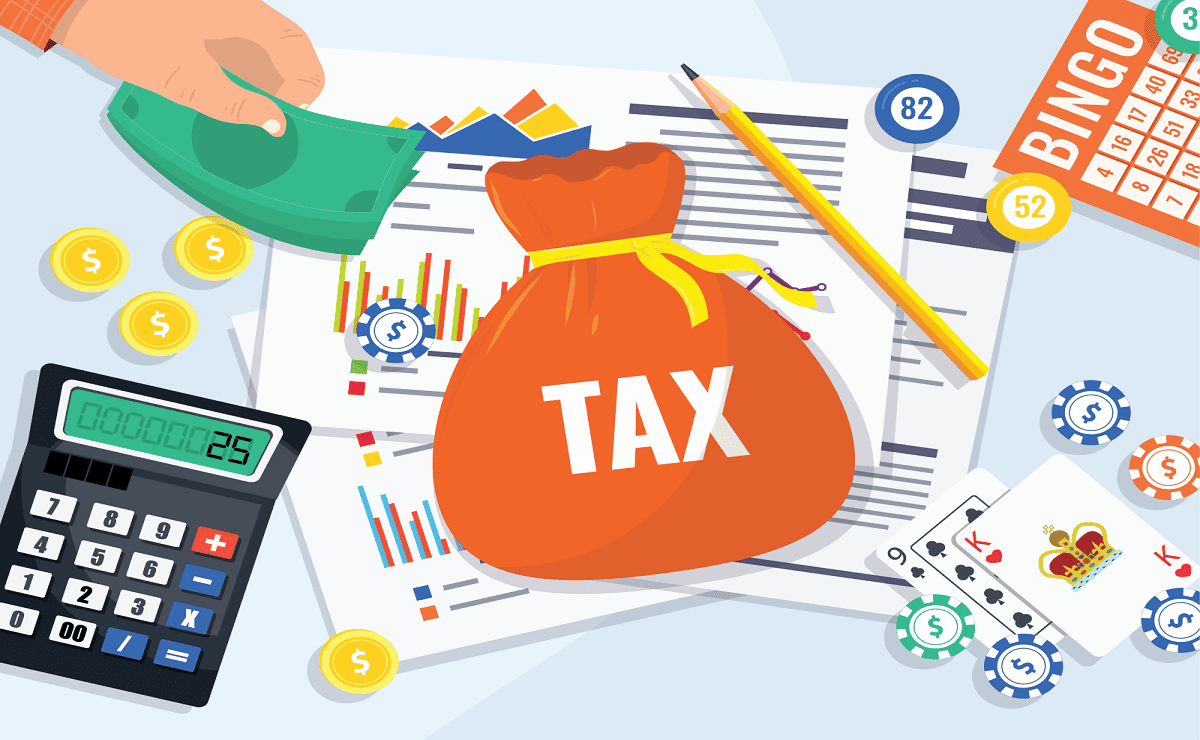The IRS considers all money won from gambling or gaming taxable income to have a fair market value, like any item you win. Simply put, you can’t avoid paying taxes on gambling winnings.
Now, gaming income is not only considered with card games and casinos; it must also include winnings from game shows, racetrack winnings, and, in some cases, bingo.
How are taxes calculated on gambling winnings?
When you win a gambling win with a legal operator, before giving you your winnings, the operator will deduct 24% of the total taxes and provide you with a copy of the IRS form W – G2 with which you have to register the transaction.
The process will be done when you win a significant amount of money, so winnings of $1,200 or more in slot machines or bingo are considered; for keno, they are regarded from $1,500 onwards.
The deduction will be made when you win sweepstakes, betting pools, or lottery starting at $5,000. The conclusion will be created automatically and sent to the IRS in all cases above. The 24% is an estimated value; you may get more or less money back depending on where you play.
Exceptions to the tax on gaming winnings
Some gaming tables will not withhold tax right away, such as blackjack, roulette, and craps, all of which qualify as games of skill and not chance. Likewise, when it comes time to file your tax return, you must add the winnings to the IRS.
We don’t have a clear explanation for why the IRS differentiates the requirements between these games, but if you play at these tables, the casino cannot determine how much money you started playing with, so they cannot take the deduction.
If you wagered $2000 and won $2000, you may not have to pay taxes because there were no winnings.
How to obtain the W – 2G form?
If the winnings are in the range indicated for the form request, you must send it before January 31 of the following year in which you had the income. The form will be given to you by the operator of the place where you played, and he will withhold the flat tax rate of 24% of your winnings.
You still have to file a tax return when you do not receive the form, including these winnings. Otherwise, the IRS considers that you are trying to omit your taxes, which will have major legal problems.
You must also declare small winnings; if you bought a scratch card and for $5 you won $20, in your next tax return, you must add the $15.
Add the gambling registration
To file your tax return, the IRS requires you to keep a detailed record of all your gambling winnings and losses; they also need you to add any documents, receipts, tickets, payslips, W – 2G forms, and bank statements.
Within the information required by the IRS, you must indicate the dates, name, and address of the establishment where you gamble or the event you attended; the type of gambling activity, number of winnings and losses, and the names of other persons present during the activity.
If you file your taxes electronically, you do not need to send the W – 2G form and other documents because you add the information online. You are still recommended to have a file with all the documents to submit in case of errors.

For years I have studied American finance regulations. All the information in this blog is sourced from official or contrasted sources from reliable sites.
Salesforce Certified SALES & SERVICE Cloud Consultant in February 2020, Salesforce Certified Administrator (ADM-201), and Master degree in “Business Analytics & Big Data Strategy” with more than 13 years of experience in IT consulting.
